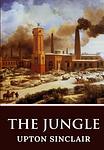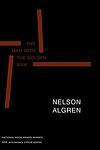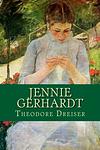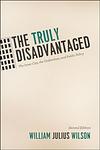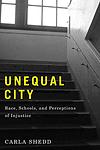The Greatest "Chicago, Poverty" Books of All Time
Click to learn how this list is calculated.
This list represents a comprehensive and trusted collection of the greatest books. Developed through a specialized algorithm, it brings together 300 'best of' book lists to form a definitive guide to the world's most acclaimed books. For those interested in how these books are chosen, additional details can be found on the rankings page.
Genres
The "Chicago" category of books refers to literature that is set in or inspired by the city of Chicago. These books may explore the city's rich history, diverse culture, and unique architecture, or delve into the lives of its residents and the challenges they face. From gritty crime novels to heartwarming coming-of-age stories, the Chicago genre encompasses a wide range of themes and styles, all united by their connection to this iconic American city.
The category of "Poverty" in books refers to stories that explore the experiences of individuals or communities living in poverty. These books may examine the social, economic, and political factors that contribute to poverty, as well as the personal struggles and triumphs of those living in poverty. They may also shed light on the inequalities and injustices that exist within society and the impact they have on marginalized communities. Overall, books in this category aim to raise awareness and understanding of poverty and its effects on individuals and society as a whole.
Countries
Date Range
Reading Statistics
Click the button below to see how many of these books you've read!
Download
If you're interested in downloading this list as a CSV file for use in a spreadsheet application, you can easily do so by clicking the button below. Please note that to ensure a manageable file size and faster download, the CSV will include details for only the first 500 books.
Download-
1. Native Son by Richard Wright
This novel tells the story of Bigger Thomas, a young African-American man living in Chicago's South Side during the 1930s. Bigger's life takes a tragic turn when he accidentally kills a young white woman. The incident leads to his arrest and trial, revealing the deep-seated racial prejudices and injustices prevalent in American society at the time. The narrative explores themes of poverty, systemic racism, fear, and the effects of oppression.
-
2. The Jungle by Upton Sinclair
This novel exposes the harsh conditions and exploited lives of immigrants in the United States in Chicago and similar industrialized cities. The protagonist, a young Lithuanian immigrant, works in the meatpacking industry and experiences the extreme poverty, poor working conditions, and lack of social services. The narrative explores the corruption of the American meatpacking industry in the early 20th century and the hardships faced by the working class, leading to significant public outcry that contributed to the passage of the Pure Food and Drug Act.
-
3. The Man with the Golden Arm by Nelson Algren
"The Man with the Golden Arm" is a novel that tells the story of Frankie Machine, a talented card dealer and drummer in post-World War II Chicago who becomes addicted to morphine. The narrative vividly portrays his descent into addiction and his struggles with poverty and crime, while also exploring themes of despair, corruption, and redemption. The book is notable for its gritty depiction of life in the urban underbelly and its nuanced characterizations.
-
4. There Are No Children Here by Alex Kotlowitz
The book follows the lives of two young African-American brothers growing up in a public housing complex in Chicago during the 1980s. The narrative portrays their daily struggles with poverty, violence, and the drug trade, while also highlighting their dreams and hopes for a better future. The book provides an intimate and heartbreaking look at the harsh realities of inner-city life, systemic racism, and the failure of public institutions to support vulnerable communities.
-
5. Jennie Gerhardt by Theodore Dreiser
This novel tells the poignant story of Jennie Gerhardt, a young woman of humble origins who, through a series of unfortunate circumstances and societal pressures, becomes involved with two different men of higher social standing throughout her life. Set against the backdrop of late 19th-century America, the narrative explores themes of love, class disparity, and the struggle for personal dignity. Jennie's character embodies resilience and moral complexity as she navigates the challenges posed by her relationships and the harsh judgments of society, ultimately highlighting the human capacity for endurance and the quest for happiness amidst societal constraints.
-
6. Eight Men: Short Stories by Richard Wright
"Eight Men: Short Stories" is a collection of tales that explore the lives of African-American men in a racially divided America. Each story delves into the experiences of these men as they navigate through the complexities of their existence, facing racial prejudice, social injustice, and personal dilemmas. The stories are a poignant portrayal of their struggles and resilience, offering a profound commentary on race relations and the human condition.
-
7. The Truly Disadvantaged by William Julius Wilson
The book examines the impact of economic and social changes on the urban poor in the United States, particularly focusing on the African American community. It discusses how factors such as deindustrialization, suburbanization, and public policy have led to the isolation of the inner-city poor, exacerbating issues like unemployment, crime, and family instability. The author argues that both structural and cultural factors contribute to the challenges faced by the truly disadvantaged and calls for a combination of social and economic policies to address these deep-seated issues.
-
8. Unequal City by Carla Shedd
"Unequal City" examines the intersection of race, class, and education in the urban environment, focusing on how the American educational and criminal justice systems shape the lives of young people in Chicago. The book delves into the experiences of Chicago high school students, highlighting the stark disparities they face based on where they live and go to school. Through a sociological lens, it explores the systemic inequalities that are perpetuated by institutional policies and practices, revealing how schools and policing policies not only reflect but also reinforce existing social hierarchies, contributing to a cycle of disadvantage for minority and low-income youth.
Reading Statistics
Click the button below to see how many of these books you've read!
Download
If you're interested in downloading this list as a CSV file for use in a spreadsheet application, you can easily do so by clicking the button below. Please note that to ensure a manageable file size and faster download, the CSV will include details for only the first 500 books.
Download
